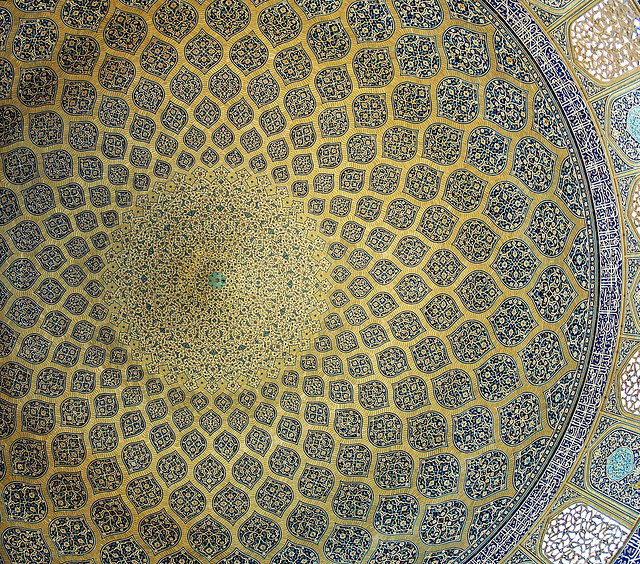As an ethnic Jew with deep ancestral roots in the once unified land of Palestine/Israel, I have dedicated a large portion of my adult life to Middle East peace work.
With the escalating unrest in that region, I have felt helpless trying to make any sense of it all, never mind in offering my self, my skills, toward a solution.
I am a writer. Sometimes all I can give is what I am.
I’m sharing here a poem written during the Second Intifada, while I was traveling in India—far from my home, but closer than I had ever been to the Middle East. The outlook for the Arab-Israeli conflict looked bleak then, too.
I found that the best way to deal with my grief was to step into it. In this case, literally, by visiting both a mosque and a synagogue in the same day.
What I experienced was deeper than I had expected: Peace from within, radiating outward.
Shortly after my return to the States, peace talks resumed between Palestine and Israel, but sadly they were short-lived. Still, from that day onward, I continued to hold a kind of cellular connection to my effort to simply be in the presence of what is holy—however the word “holy” is defined.
I needed to find my small way in the vastness of divine possibility. To continue to give whatever I can, in whatever way I can, by simply being present and open.
If so moved, please feel free to open a mindful discussion and/or share your thoughts in the comments section below.
Offerings
Haji Ali Mosque
Last morning in Mumbai
I go to the mosque.
My sandals taken by the boy
who squats in dust. He points left.
This is where I belong. With the women.
Inside, I wait my turn
to hand over my marigold offering,
first peeling back their newspaper shroud.
My bundle is tossed onto others, identical
but for my burst of color, covering
the remains of Haji Ali.
Behind me, a woman’s tss. I turn
to see what infraction I must have committed.
But my startled face makes her smile. She waves
a dismissive hand.
I sit. Around me
women and children come and go.
Through the latticed wooden wall
I watch the men. They are
allowed near the shrine, allowed to touch
its precious edges.
I think of leaving, but can’t.
So in the heat and the flies
I begin to pray.
My father, dead now
nearly two years, comes to me.
We’d sat in his cabin and listened
to a recording of the Call to Prayer
because it reminded him of early mornings
in Turkey where he spent a year
as a young man teaching English.
He was dying the night we heard
that crimson call.
Something deep within us rising.
Now, my head bowed and shrouded, I weep.
When this sadness passes, there is
nothing left of me.
I gather up what I remember—
I am a Jew.
Sitting here.
A woman. Sitting here
with women, relegated as we are
to the side, behind
the metal offering boxes, walled off
from the other half, the holy
—and I pray for peace.
Afterwards, I place my forehead
to the ground, kiss the marble floor
and back out, touching the threshold
once
then my eyes.
I collect my sandals from the crouching boy,
adjust my headscarf.
Suddenly I realize the error of my offering.
The flowers were to remain wrapped.
But I had unveiled them,
set the blossoms free
one last time.
Knesset Eliyahoo
Hours later, I visit the synagogue.
Three women, their ages the phases of the moon,
sit at the entrance.
Sephardic or Ashkenazi? Full Moon Woman asks me.
She raises an eyebrow.
This is a Sephardic synagogue.
I ask, risking the cheek of it,
Isn’t it all the same?
She gives a look to the elder
waning in afternoon heat
then sends me upstairs with the girl.
They’ll open the temple, she says. Just for me.
The girl is pleased for the company. She throws open
the doors, switches on ceiling fans
as I wander on mosaic tiles, marveling
at bright blue walls
at the stained glass
flowerbursts everywhere.
We sit on a pillowed bench, the girl and I.
She confesses she is Catholic.
She works here, making sure
the synagogue is kept clean. If it’s not
she gets yelled at.
It’s clean, na?
Waxing girl. Her moon face shines with hope.
Yes, I assure her. It is clean.
Relieved now, she talks of marriage.
She prays for a husband
to deliver her from a houseful of siblings.
While she talks, her eyes
grow round. They are fixed
on one of my hands,
the lavender jade ring I never remove.
I tell her this stone brings inner clarity.
Peace, I say, putting a hand to my chest.
She nods. When you come back to India
you’ll bring me one.
I remove the ring
take her slender hand
slip it onto her middle finger.
Mechanically the girl protests, but
she’s already cradling
her adornment, declaring
with sweet certainty
she will pray to get fat.
As I leave, the girl lingers
on the staircase. She calls out:
Don’t forget me. Promise
you won’t forget me.
She tells me
her name is Blossom.
Love elephant and want to go steady?
Sign up for our (curated) daily and weekly newsletters!
Author: Rachel Astarte
Editor: Emily Bartran
Photo: seir&seir/Flickr

 Share on bsky
Share on bsky







Read 2 comments and reply